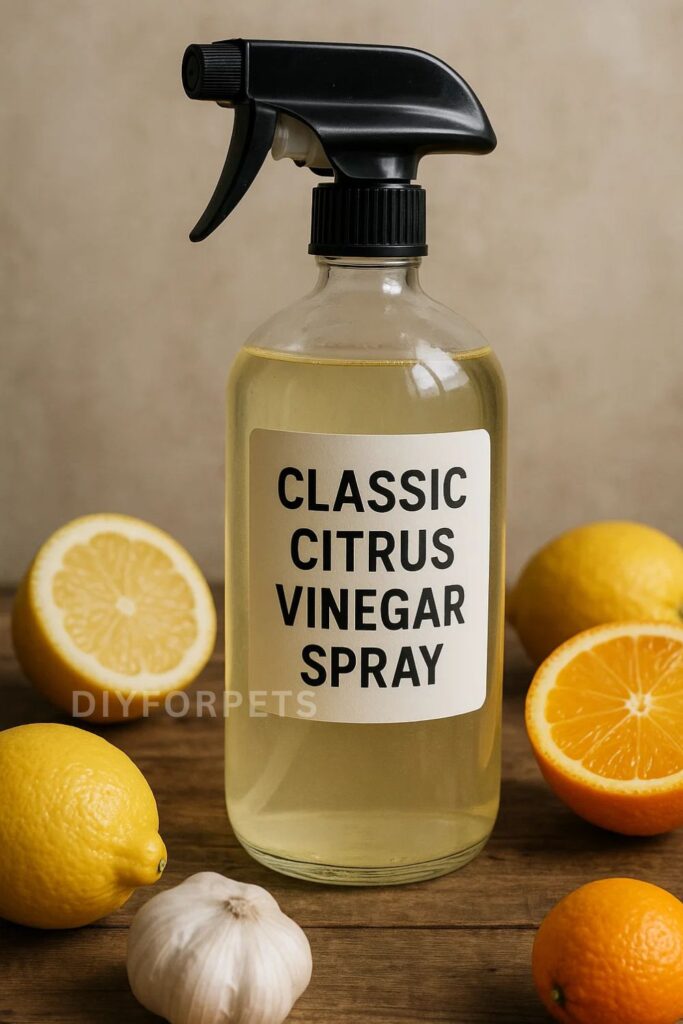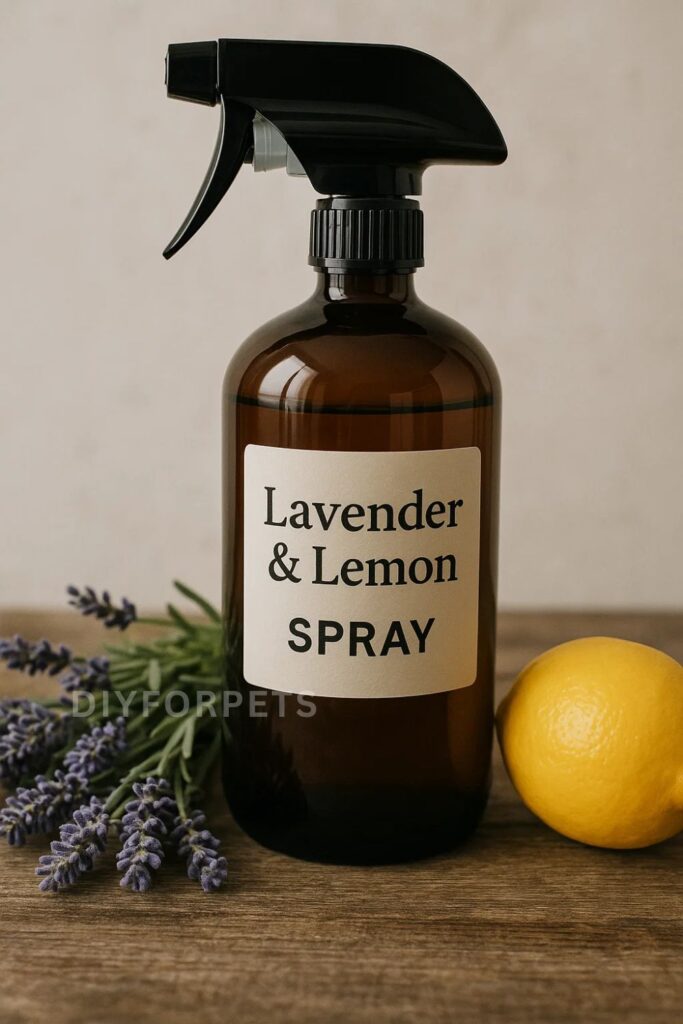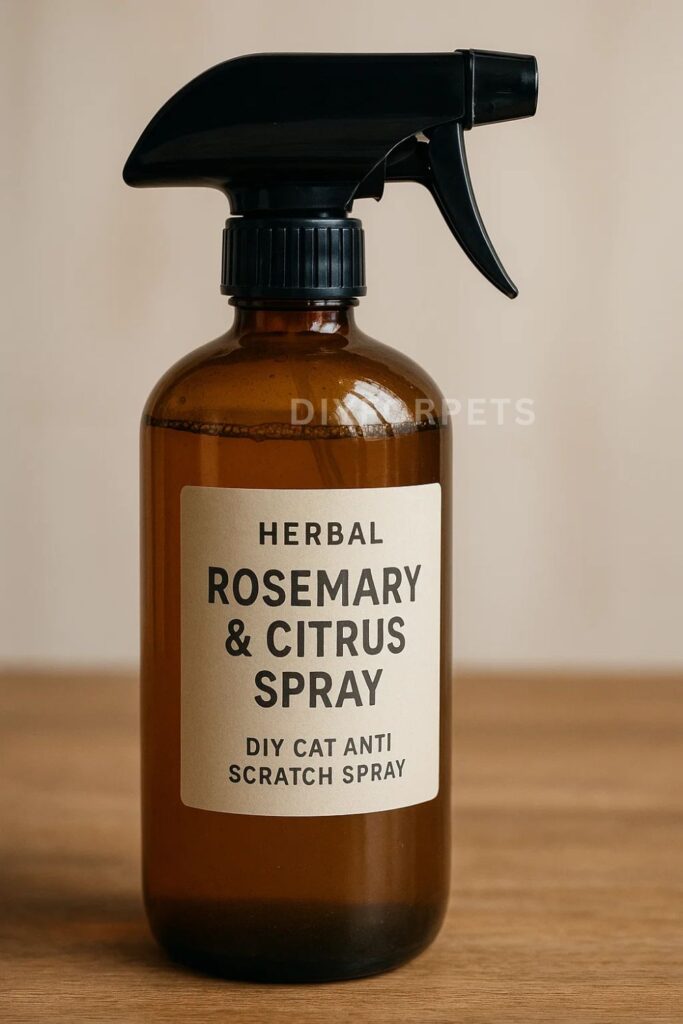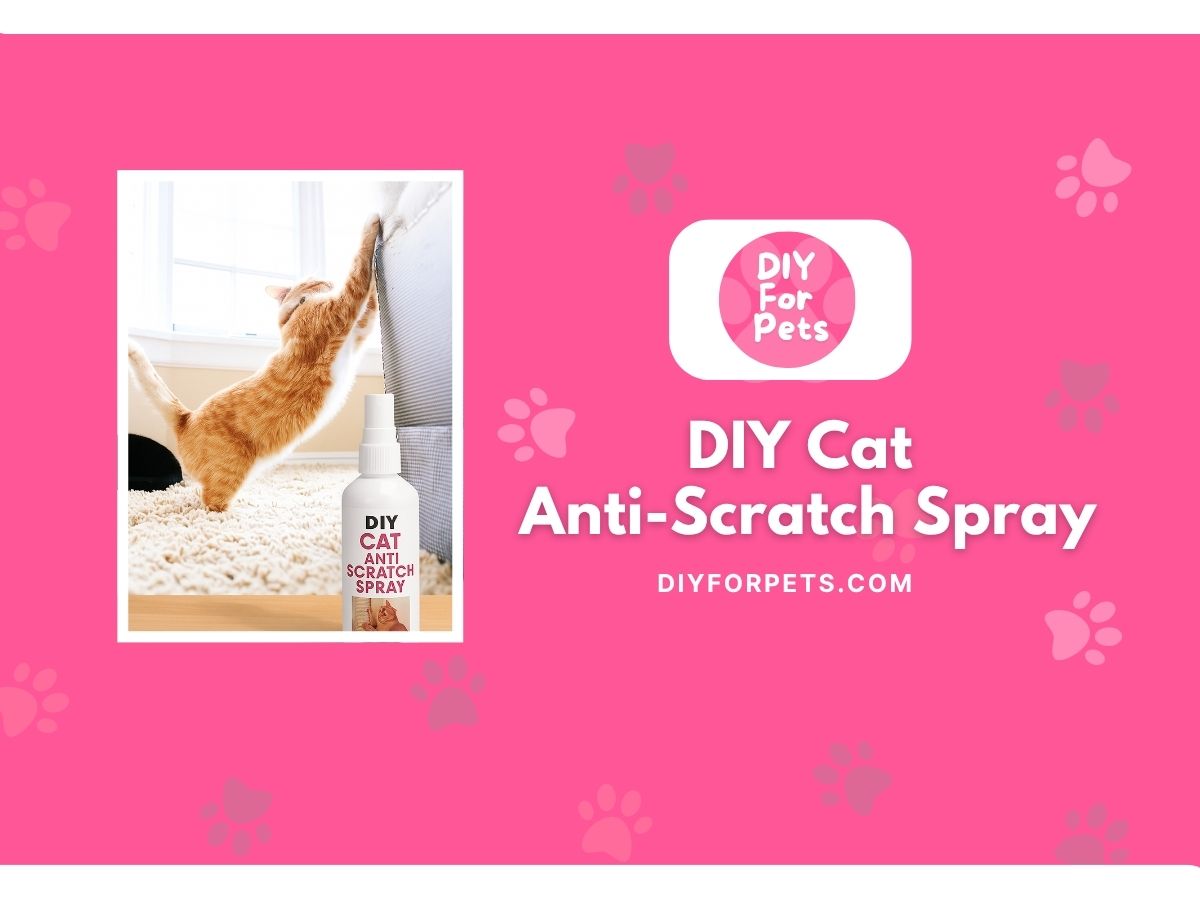The Only DIY Cat Anti Scratch Spray You’ll Ever Need (It’s That Good)
If you’ve ever caught your cat turning your favorite couch into their personal scratching post, you know the struggle. But before you panic – or drop serious cash on sprays that smell like regret—let me introduce you to something better: a DIY cat anti scratch spray. It’s natural, budget-friendly, and easy to make at home with just a few ingredients. Trust me, your furniture (and sanity) will thank you.
Why Do Cats Need Anti Scratch Sprays?
Scratching is an instinctive behavior for cats. They do it to stretch, mark their territory, and keep their claws healthy. Unfortunately, when your cat decides that your favorite armchair is the perfect scratching post, it can lead to some serious wear and tear. Anti-scratch sprays can deter cats from scratching specific areas by making the surface smell unpleasant to them without causing any harm. DIY anti-scratch sprays are affordable, chemical-free, and super easy to make, which is great for any pet owner on a budget or anyone who wants a more natural solution.
Step by Step Guide For A DIY Cat Anti Scratch Spray
Let’s go through how to make a simple, effective anti-scratch spray at home. You’ll only need a few basic ingredients, and it won’t take more than 10 minutes to put together.
Materials Needed
- Spray bottle: $1–$3
- Water: Free
- White vinegar: $1–$2
- Citrus essential oil (like lemon or orange): $5–$8
- Optional: Rosemary or lavender essential oil: $5–$7
Total cost: Around $7–$10, depending on what you already have on hand.
Phase 1: Preparing the Base
Start by filling your spray bottle about ¾ full with water. Water acts as the base for the spray and helps dilute the strong scents so that they’re just right for deterring scratching without overwhelming your home with strong smells.
Phase 2: Adding the Key Ingredients
Add 1 tablespoon of white vinegar and 10–15 drops of citrus essential oil. Cats generally dislike the smell of citrus, so it’s a natural way to keep them away from certain areas. You can also add a few drops of rosemary or lavender oil, which many cats tend to avoid. Shake the bottle well to mix everything together.
Phase 3: Testing and Application
Before spraying, test a small amount on an inconspicuous area of your furniture to ensure it doesn’t cause any discoloration. If it’s safe, spray a light mist over the areas you want to protect, such as the corners of your couch or the sides of a wooden table.
Phase 4: Reapplication
Reapply the spray every few days or as needed. Since this is a natural mixture, you’ll want to refresh the scent regularly for the best effect.
Easy DIY Cat Anti Scratch Spray Ideas
Here are a few variations on anti-scratch spray recipes that you can make at home, depending on what ingredients you have and what your cat responds to. Each one is safe, effective, and easy to customize.
1. Classic Citrus Vinegar Spray
This is a simple, no-fuss option that works wonders for most cats. Fill a spray bottle with 1 cup of water, 1 tablespoon of white vinegar, and 10–15 drops of orange or lemon essential oil. The combination of vinegar and citrus creates an aroma that cats generally find unpleasant. Spray it on any area you want to protect, like couch corners or even fabric.
This option costs around $3 to make and is perfect for most households with furniture that needs a little extra protection.

2. Lavender & Lemon Spray
For a fresh, calming scent that also works as a cat deterrent, try this lavender and lemon mix. Combine 1 cup of water with 1 tablespoon of white vinegar, 10 drops of lemon essential oil, and 5 drops of lavender essential oil. Lavender is a natural stress reliever and can help reduce any scratching behavior due to anxiety, while the lemon keeps cats from scratching.
This costs about $5 and doubles as an air freshener, making it a win-win solution for pet owners.

3. Herbal Rosemary & Citrus Spray
If you prefer a more herbaceous scent, try a rosemary and citrus blend. Add 1 cup of water to a spray bottle, then add 10 drops of orange essential oil and 5 drops of rosemary essential oil. This mixture is especially great for wooden furniture, as the herbal and citrus scent can keep cats away while also adding a fresh aroma to the room.
This spray costs around $6 to make and is excellent for those who enjoy herbal scents in their home.

4. Apple Cider Vinegar & Lemon Spray
Apple cider vinegar has a slightly sweeter scent than white vinegar, which makes this a good choice if you find the other sprays too strong. Mix 1 cup of water with 1 tablespoon of apple cider vinegar and 10 drops of lemon essential oil. Cats don’t like the smell of apple cider vinegar or lemon, making this a highly effective combination for deterring scratching.
This costs about $4 to make and is a mild but effective spray for any household.
Dos & Don’ts in Cat Anti Scratch Spray
- Do: Test each spray on a small, hidden area of your furniture before applying it more broadly.
- Do: Reapply the spray every few days to keep the scent strong enough to deter your cat.
- Don’t: Use too much essential oil, as some cats are sensitive to strong scents. A few drops go a long way.
- Do: Pair the spray with a scratching post or other appropriate items to redirect your cat’s scratching behavior.
- Don’t: Spray the solution directly on your cat. It’s meant for furniture and areas, not for application on your pet.
Protect your furniture with a DIY cat anti-scratch spray that’s gentle yet effective, using natural repellents like vinegar and citrus. You’ll encourage good scratching behavior, reduce stress on your home, and create a peaceful, cat-friendly environment without excess chemicals or strong odors.
FAQs
1. How often should I apply the anti-scratch spray?
Reapply the spray every 2–3 days or whenever you notice the scent fading. The goal is to maintain a consistent smell that keeps your cat away from the area.
2. Is it safe to use essential oils around cats?
Yes, as long as they are diluted. Avoid using strong essential oils directly on your pet or in concentrated forms. The mixtures provided here are safe when applied to furniture.
3. Can I use these sprays on all types of furniture?
Yes, but it’s always a good idea to test the spray on a small, hidden area first, as certain materials may react to vinegar or essential oils.
Using DIY anti-scratch sprays has really helped save my furniture from my cats’ natural scratching instincts. Not only are these sprays easy and inexpensive to make, but they’re also a natural solution that’s safe for everyone in the household.
If you’re looking for a way to protect your furniture without discouraging your cat from being themselves, give these sprays a try they just might be the gentle nudge your cat needs to scratch elsewhere!







